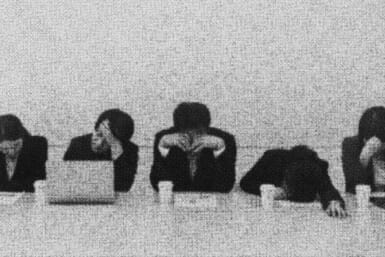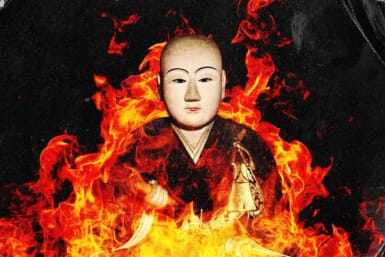As typhoon season is in full swing and disaster preparation drills are performed nationwide, it seems fitting to learn about yudantaiteki, an expression that warns us to keep our guard up.
Yudantaiteki (油断大敵)
Meaning: Don’t let your guard down, carelessness is the enemy, negligence is the cause of failure, danger comes soonest when it is despised, false security is a great foe, don’t be too sure of yourself. Depending on the context, it can also mean: pride comes before a fall, pride that blinds.
Literal translation and kanji breakdown: Quite literally, yudantaiteki combines 油断 (carelessness, negligence) and 大敵 (great enemy, powerful foe, archenemy) to create “carelessness (is) the great enemy” making it an easy expression to follow. While 油断 is often used in a variety of contexts, it’s uncommon to see 大敵 when not in this four-compound kanji.
Yudantaiteki: The Origins
While yudantaiteki makes sense as a compound and taiteki is pretty straightforward, yudan requires a deeper analysis. There are a few etymological theories for this compound, which is made up of the characters for oil (油) and decision/abstention (断).
One theory connects the word to Enryaku Temple, a Tendai monastery on Mount Hiei in Kyoto. There, the Hoto Lamp — much like the Olympic flame — is said to never go out. It has burned continuously for 1,200 years because the monks replenish it with oil every day. If they were to abstain from adding the oil, it would lead to a disruption in their daily rituals and it would be all downhill from there.
Another suggestion is that it comes from a story in the Mahayana Mahaparinirvaṇa Sutra. There, a king orders a minister to carry a pot full of oil through a crowd of people. The catch is that if he spills a single drop, he will be executed. The minister succeeds in his quest only because he was utterly focused on his task.
The third idea is that yudan comes from an archaic word, yuta (寛), which means relaxed or lenient. This theory implies the apparent connection between people slacking off and consequently messing up.
Yudantaiteki: Similar Expressions
Since the expression is pretty self-explanatory, there’s no need to dive into this idiom’s origins. Instead, let’s take a look at several proverbs with similar meanings.
勝って兜の緒を締めよ/ Katte kabuto no o wo shimeyo: Literally “keep the strap of your helmet tied on even if you win,” it advises to keep your guard up even after a victory.
猿も木から落ちる/ Saru mo ki kara ochiru: Though it has a more positive spin, the expression “Even monkeys can fall from trees” (meaning everyone makes mistakes) conjures similar images.
弘法にも筆の誤り/ Kobo ni mo fude no ayamari: Literally, Kobo’s (as in famed Buddhist monk Kobo Daishi) handwriting has mistakes. Again, like the above, it means anyone can make a mistake. On the topic of Kobo, there is also the expression 弘法筆を選ばず / Kobo fude wo erabazu, which means “a workman doesn’t blame his tools”.
好事魔多し/ Kouji ma ooshi: Lights are usually followed by shadows.
Using “yudantaiteki” in a sentence
A: 私は勉強しなくても日本語能力試験に合格できる。Watashi wa benkyou shinakutemo nihongo nouryoku shiken ni goukaku dekiru. I can pass the JLPT exam without studying.
B: ちょっと楽観的すぎない?テストは簡単かもしれないけど、油断大敵だ。Chotto rakkanteki suginai? Testo wa kantan kamoshirenai kedo, yudantaiteki. Aren’t you being a bit too optimistic? The test is going to be a piece of cake, but you can’t become complacent.
熱が下がったとはいえ油断大敵だ。今日もしっかり食べて早く寝よう。Netsu ga sagatta towa ie yudantaiteki da. Kyou mo shikkari tabete hayaku neyo. Even if you no longer have a fever, don’t let your guard down. Have a good meal and go to bed earlier today, too.
Want more? Follow our weekly Yojijukugo Japanese Idiom series, published every Friday. Learn the meaning of “chinpunkanpun” here. For an article on how to prepare in case of a typhoon, see here.








